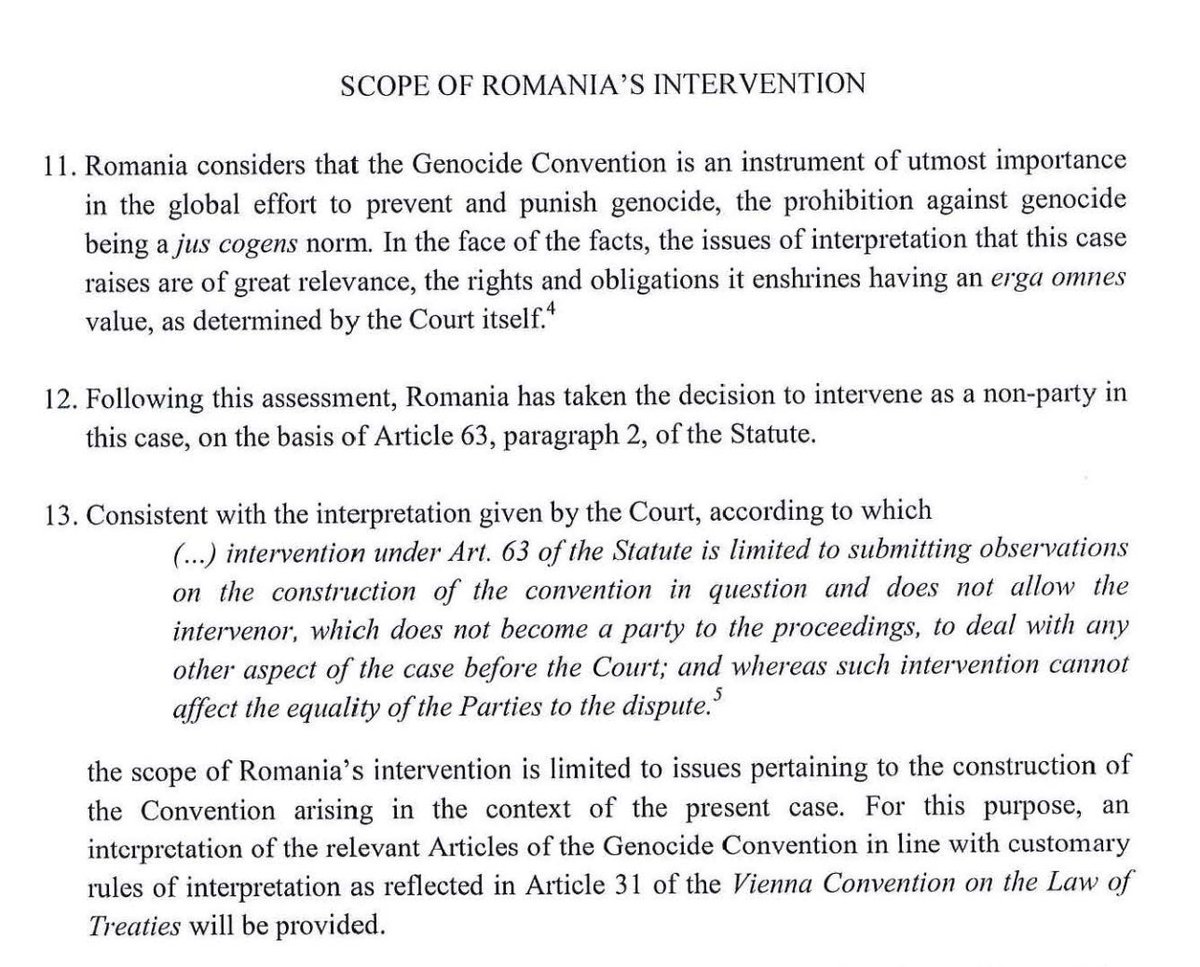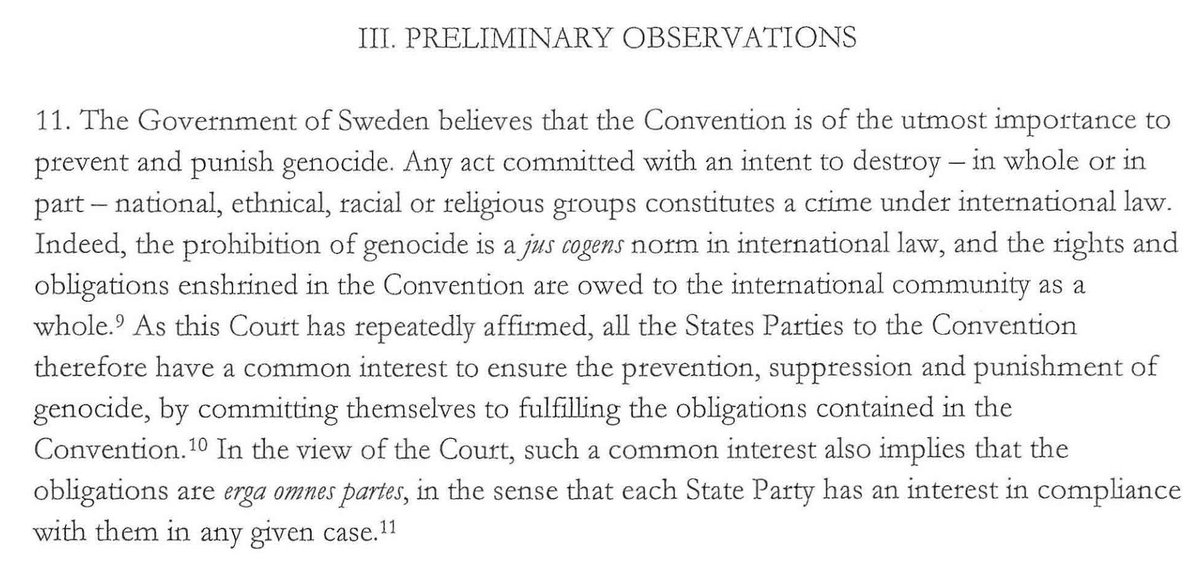#Romania's declaration of intervention is now available on the #ICJ's website: icj-cij.org/public/files/c…
A few observations 🪡 #Ukraine #Russia 1/16
A few observations 🪡 #Ukraine #Russia 1/16
https://twitter.com/CIJ_ICJ/status/1569733415095701504
To begin, Romania's declaration is very much to-the-point. While it does underline the importance of the Genocide Convention, it doesn't expand so much beyond the Statute's requirements for justifying its intervention. 2/ 

As for the provisions it plans to offer its construction on, Romania cites arts IX (compromissory clause) and I (prevention and punishment), the latter in turn necessitating interpretation of arts II, III, VIII. 3/
Before going into the specifics of these provisions, Romania offers some general observations. It probably expands the most, of interveners so far, on the basis of pacta sunt servanda, going as far as citing the Friendly Relations Declarations and the Helsinki Final Act. 4/ 



This leads it to observe that the Convention must be applied in good faith, which in turn necessitates it being interpreted in good faith and that parties refrain from frustrating its object and purpose – which it expands upon by reference to the 1951 advisory opinion. 5/
Romania then proceeds to analyse art IX. Romania first engages in quite a standard analysis of the concept "dispute" (albeit maybe playing down necessity of dispute existing upon seising the Court, à la 🇲🇭v🇮🇳🇵🇰🇬🇧). 6/ 



It then considers what this jurisdiction extends to. It also makes the case that jurisdiction extends to claims of non-violation, albeit placing emphasis on teleological considerations. However, like 🇬🇧🇸🇪, it also underlines art IX's use of the phrase "any party". 7/ 



Romania adds that jurisdiction also extends to disputes over the scope of the obligation to prevent and punish, and specifically whether unlawful use of force would be "acceptable conduct for that purpose". 8/ 

Romania then ventures into the substantive provisions of the Convention. It begins by observing that the obligation to prevent and punish is one of using reasonably available means, which in turn implies that a state "cannot act" contrary to international law. 9/ 

Romania also observes that art I creates an obligation of due diligence, which demands a "proper" (and not arbitrary or subjective) determination of a "serious risk of genocide". 10/ 

It continues to cite ICJ's jurisprudence on the standard of proof for proving genocide and its modes liability, concluding that a state defending actions on the basis of art I must be able to meet that standard, while adding reliance on independent reports a best practice. 11/ 



There is a sense of conflation between interpretation of obligations under the Convention and the (procedural) standard of proof for proving facts before the ICJ.
Additionally it is questionable whether said independent reports are usually based on "fully conclusive" evidence.12/
Additionally it is questionable whether said independent reports are usually based on "fully conclusive" evidence.12/
In any event, Romania then expands on the need for measures of prevention and punishment to conform to international law, emphasising that actions of prevention cannot violate 2(4) UN Charter. By reference to art VIII, it also underlines preference for collective action. 13/ 

Finally, like 🇱🇻🇱🇹🇬🇧🇸🇪, Romania notes that measures of punishment under the Convention are those conducted through the municipal and international criminal law frameworks. 14/ 

Before concluding, worth noting that Romania is first intervener whose foreign minister, @BogdanAurescu, has been appointed agent, though given his expertise in international law (i.a. member of #ILC) this should not come as any surprise. 15/ 

To conclude, Romania's intervention is very succinct. There is perhaps room for criticism of its analysis on conclusiveness of allegations of genocide or risk thereof, but otherwise the arguments made are mostly straightforward. 16/16
• • •
Missing some Tweet in this thread? You can try to
force a refresh




























